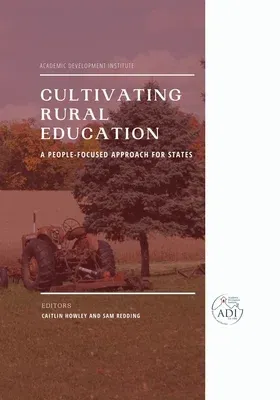Cultivating Rural Education: A People-Focused Approach for StatesPaperback, 18 March 2021

Qty
1
Turbo
Ships in 2 - 3 days
In Stock
Free Delivery
Cash on Delivery
15 Days
Free Returns
Secure Checkout
Print Length
190 pages
Language
English
Publisher
Information Age Publishing
Date Published
18 Mar 2021
ISBN-10
1648024688
ISBN-13
9781648024689
Description
Product Details
Book Format:
Paperback
Country of Origin:
US
Date Published:
18 March 2021
Dimensions:
25.4 x
17.78 x
1.02 cm
Genre:
Rural
ISBN-10:
1648024688
ISBN-13:
9781648024689
Language:
English
Pages:
190
Publisher:
Weight:
340.19 gm

